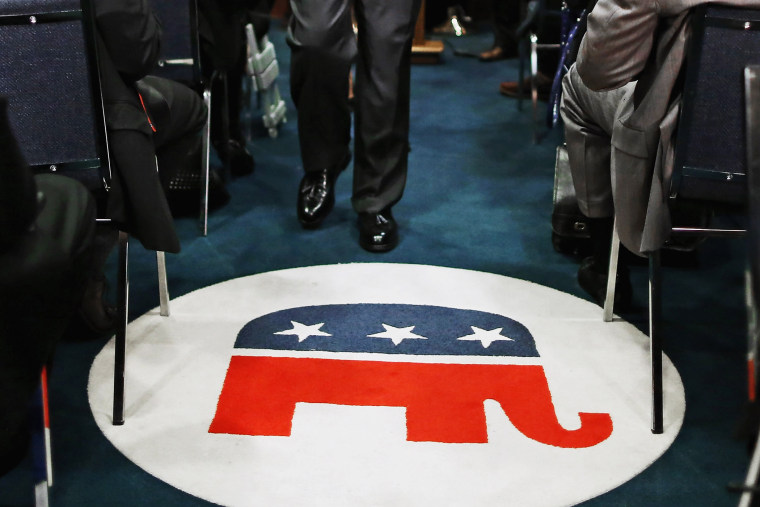During last year's fight over health care, there was a spirited public debate over Republican plans, and when it came time for lawmakers to vote, it was clear that the GOP had lost the argument. In fact, it wasn't especially close: the public was strongly against the Republican measures, as were insurers, doctors, nurses, hospital administrators, and patient advocates. Stakeholders who agreed on little else agreed that GOP officials were peddling a bad idea.
At which point, Republicans said they simply didn't care. They ignored Americans' wishes and very nearly passed their plan.
Months later, there was another vigorous debate, this time over the regressive GOP tax plan. And once again, Republicans' opponents won the argument: the GOP proposal was the least popular major piece of legislation in recent memory. A wide variety of economists and budget experts heartily agreed with the American mainstream and denounced the legislation.
Republican officials couldn't have cared less.
As fall 2018 got underway, Brett Kavanaugh became the least popular Supreme Court nominee in a generation. Democrats set out to persuade anyone who'd listen that he didn't deserve to be confirmed, and they largely succeeded: law professors, newspaper editorial boards, and others joined the public at large in denouncing Kavanaugh and calling for his defeat.
Which brought us to a familiar point. Vox's Dylan Scott had a good piece on the phenomenon over the weekend:
This is the governing ideology of the Republican Party: We don't care what anybody else thinks. We have the power. We have the will. We have the votes. We'll do what we want.In politics, there's winning the argument, and there's winning the vote. Republicans lost the argument, but they ultimately had the votes.
Quite right. And they had the votes because GOP officials are largely indifferent toward the wishes of the American mainstream.
As we discussed a year ago, in the traditional model, when one party controls the levers of power, the opposition party has limited options. Its principal objective becomes obvious: make the majority party's goal as unpopular as possible in order to pressure the majority party's members to break ranks and defeat the agenda.
When the GOP tax plan passed, or when Kavanaugh managed to secure just enough votes to clear the Senate, it may have been tempting to think Democrats should've done a better job at making the case against these Republican priorities. Except that's wrong: by and large, throughout Donald Trump's presidency, Democrats and other Republican opponents have fared quite well when it comes to persuading the public.
But the model breaks down when a democracy's majority party decides the wishes of the nation's mainstream aren't especially important. Winning the debate is irrelevant when the party in charge is unmoved by public outcries.
As for why the GOP is content to ignore what you think, Republicans tend to believe the system is tilted in such a way as to make their success effectively voter-proof. Many represent ruby-red states where Democratic candidates have little realistic chance of success; many rely on gerrymandering to effectively guarantee their re-election, and those who are concerned about their re-election probably take some solace in the fact that mega-donors will invest in their campaigns -- just so long as they toe the party line when it counts.
It's a dynamic in which Republicans don't care what voters think; they only care what their voters think.
